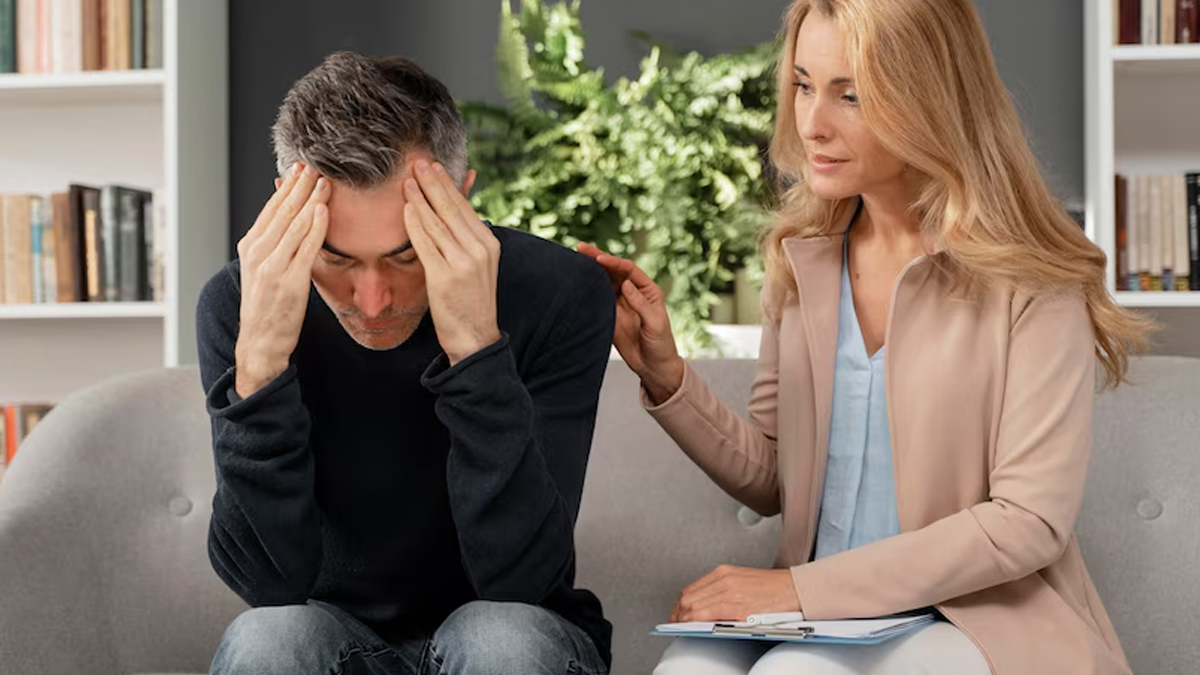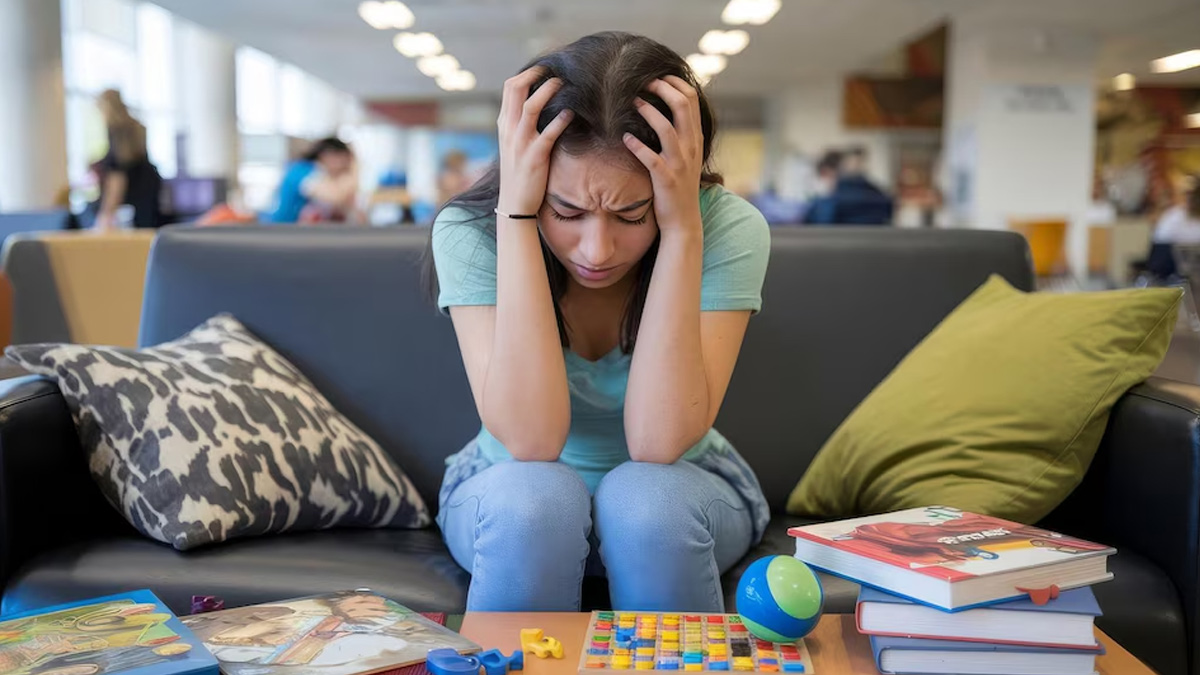Attention Deficit Hyperactivity Disorder (ADHD) is often thought of as a childhood condition, but for many, the symptoms persist into adulthood, causing significant challenges in various aspects of life. ADHD can impact the day-to-day functioning of adults from facing difficulty in focussing at work to maintaining relationships. While childhood ADHD is recognised widely, diagnosing and managing the condition in adults requires a more nuanced approach.
To understand ADHD in adults and the tips to manage it, OnlyMyHealth interacted with Dr SA Idrees, Consultant Psychiatrist, Manipal Hospital, Bhubaneswar.
Adult ADHD: The Overlooked Struggle
“Many adults come to my consultation chamber claiming they have ADHD,” says Dr Idrees. He further added, “Sometimes, while evaluating children for ADHD, their parents notice similar traits in themselves and presume they might have had it in their childhood. Diagnosing ADHD in children may seem easy for a child psychiatrist, but it is equally difficult to confirm ADHD in adults.” Dr Idrees emphasises the importance of verifying the diagnosis by identifying ADHD symptoms in childhood that have persisted into adulthood.
Research suggests that approximately 7% of adults live with ADHD, and while many childhood symptoms may subside, some residual symptoms continue to persist. Dr Idrees points out, “Almost half of the children with ADHD will be symptom-free by the time they reach adulthood, but many still experience inattention and its consequences.”
Also read: Understanding Link Between ADHD And Co-occurring Conditions: What Parents Should Know
Challenges Faced by Adults with ADHD
Adults with ADHD not only deal with core symptoms such as inattention, hyperactivity, and impulsivity but also face secondary challenges. According to Dr Idrees, “Those with adult ADHD face difficulties maintaining relationships, poor job performance, challenges in prioritising responsibilities, and they are more prone to mental illnesses such as anxiety, depression, drug addiction, and even suicidal tendencies.”
These secondary consequences can further complicate the management of ADHD, and thus Dr Idrees emphasised to adopt a holistic approach to treatment that addresses not only the core symptoms but also these peripheral issues.
Medication and Behavioral Therapy
When it comes to managing the core symptoms of ADHD, Dr Idrees talks about the effectiveness of medication. “Several medications are available to improve concentration, attention span, and reduce hyperactivity. This is often the path clinicians take.” However, medication alone is not sufficient for managing ADHD. Working on behavioural modifications hand in hand also plays a crucial role in the treatment.
According to Dr Idrees, behavioural modification, prioritising and planning daily activities, and professional work are of utmost importance. He suggests breaking down complex or lengthy tasks into smaller steps and tackling them sequentially. Simple strategies like using a daily checklist can help adults with ADHD stay organised and focused.
Additionally, Dr Idrees emphasises the importance of behaviour therapy for managing impulsivity. “Addressing low self-esteem, anxiety, and apprehension is essential for greater inclusivity in society. Of course, any mental illness secondary to ADHD must be treated as usual,” he said.
Also read: Alia Bhatt Reveals Having Attention Deficit Disorder; Signs And Symptoms To Look Out For
Practical Tips for Managing ADHD in Adults

Prioritise and Plan: Create a daily schedule or checklist of tasks. Breaking larger tasks into smaller, manageable steps can help alleviate the feeling of being overwhelmed.
Minimise Risk-Taking Behaviour: Adults with ADHD may be more prone to impulsive actions. Recognizing these tendencies and avoiding risky situations is crucial.
Behavioural Therapy: Engage in therapy that helps manage impulsivity, improves time management, and boosts self-confidence. Therapy can be especially helpful in addressing issues like low self-esteem and anxiety, which often accompany ADHD.
Address Secondary Conditions: Many adults with ADHD also struggle with anxiety, depression, or addiction. It’s important to treat these conditions alongside ADHD.
Seek Professional Help: While self-management techniques are helpful, it’s essential to consult a psychiatrist for proper medication and behavioural therapy to effectively manage ADHD symptoms.
Does ADHD Ever Completely Go Away?

Dr Idrees reminds us that ADHD is a neurodevelopmental disorder, meaning it is not something that will completely go away with age but can be managed effectively. “ADHD is going to be there and can only be manageable with these means. Also, it is inheritable, meaning those with ADHD have a high chance of passing it on to their children.”
Therefore, screening children for ADHD early on, especially if there is a family history, is crucial for their proper growth and learning.
Conclusion
Managing ADHD in adults requires a multifaceted approach that includes medication, behavioural modifications, and addressing secondary mental health conditions. As Dr Idrees aptly puts it, “We need to remember that ADHD is a neurodevelopmental disorder, and while it may persist into adulthood, it can be managed with the right strategies.” If you or a loved one is struggling with adult ADHD, don’t hesitate to seek professional help. With the right support, you can lead a fulfilling and productive life.
Read Next
Kerala Man Diagnosed With Murine Typhus, Here’s All You Need To Know About The Flea-Borne Illness
Disclaimer





